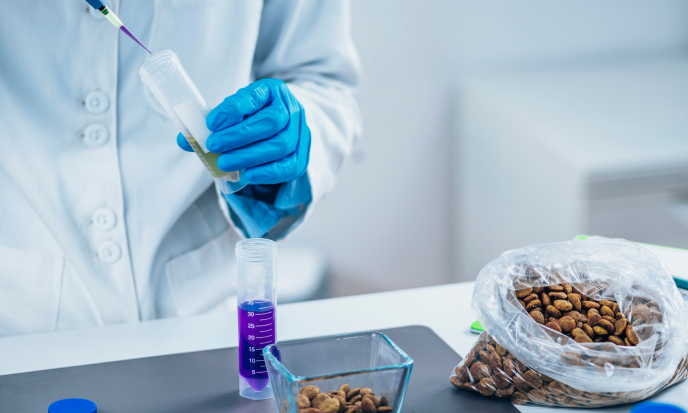
Is Your Food Really Safe? Frequently Asked Questions About Food Quality Testing
In today’s fast-paced world, we often buy packaged, processed, and restaurant-made food without knowing how safe it truly is. Contamination, poor hygiene, and adulteration can affect the food we consume, leading to health risks. This is where food quality testing becomes essential.
In this blog, we answer the most frequently asked questions (FAQs) about food quality testing so you can understand why it matters and how it keeps your meals safe.
What Is Food Quality Testing?
Food quality testing is the process of analyzing food products to check if they meet safety, nutritional, and quality standards. It helps identify contamination, adulteration, spoilage, and nutritional inconsistencies before food reaches consumers.
This ensures the food you eat is:
- Safe for consumption
- Free from harmful bacteria, chemicals, or toxins
- In compliance with government regulations
- Nutritious and high in quality
Why Is Food Quality Testing Important?
Food quality testing is vital for both public health and consumer trust. Contaminated or poor-quality food can cause food poisoning, allergies, or even chronic health issues.
- Prevents foodborne illnesses
- Ensures compliance with FSSAI, ISO, and global standards
- Detects adulteration (like mixing water in milk, or chemicals in fruits)
- Maintains freshness and nutritional value
- Builds trust for food manufacturers and restaurants
In cities like Chennai, where there is a high demand for packaged food, strict quality testing is non-negotiable for safety.
What Are the Different Methods of Food Quality Testing?
Food testing laboratories use various methods depending on the product.
- Microbiological Testing – Detects bacteria, yeast, and mold.
- Chemical Testing – Identifies pesticides, preservatives, and toxins.
- Nutritional Analysis – Measures proteins, fats, vitamins, and minerals.
- Physical Testing – Checks texture, color, and appearance.
- Allergen Testing – Detects gluten, nuts, soy, or other allergens.
For example, food quality testing in Chennai often includes milk purity testing, packaged water testing, and contamination checks for restaurants.
Who Needs Food Quality Testing?
- Food manufacturers – To ensure compliance with safety laws
- Restaurants & hotels – To serve safe food to customers
- Exporters/importers – To meet international quality standards
- Supermarkets & retailers – To avoid recalls and consumer complaints
- Consumers – To be confident about what they’re eating
What Happens If Food Is Not Tested?
- Foodborne illnesses like salmonella, E. coli, and listeria
- Adulteration leading to poor nutrition and harmful effects
- Product recalls which damage business reputation
- Legal penalties for violating safety standards
For instance, improper food testing in a packaged water brand can spread contamination to thousands of consumers, causing serious public health issues.
How Is Food Quality Testing Done in Chennai?
- Packaged water for purity and contamination
- Milk and dairy products for adulteration
- Fruits and vegetables for pesticides
- Bakery items and processed foods for chemicals and nutrition
- Street food and restaurant samples for hygiene and microbial safety
These labs follow ISO and FSSAI guidelines, ensuring every product meets quality benchmarks.
What Are the Benefits of Food Quality Testing for Consumers?
- For consumers: Confidence that food is safe, protection from harmful chemicals or pathogens, awareness of nutritional content, better health and well-being
- For businesses: Regulatory compliance, reduced risk of product recalls, stronger brand reputation, customer loyalty
How Often Should Food Be Tested?
- Perishable foods (milk, meat) – tested frequently, sometimes daily
- Packaged foods – tested batch-wise before reaching shelves
- Water & beverages – tested regularly to avoid contamination
- Restaurant samples – tested periodically to maintain hygiene
In Chennai, many food manufacturers and restaurants partner with accredited labs for routine food quality checks.
How Can Consumers Identify Tested Food?
- FSSAI license number on packaging
- ISO-certified labeling
- NABL or third-party lab certification marks
- Product recalls or safety notices online
When in doubt, consumers can also request lab test reports from manufacturers, especially for bulk purchases.
What Is the Future of Food Quality Testing?
With increasing demand for safe and nutritious food, testing technologies are evolving. Some future trends include:
- AI and IoT-powered testing devices for faster results
- Portable testing kits for real-time analysis
- Blockchain tracking for transparent supply chains
- DNA testing of food for authenticity
In Chennai, where food industries are growing rapidly, these technologies will play a key role in protecting public health.
Food quality testing is not just about regulations – it’s about protecting lives. From checking milk adulteration to ensuring restaurant hygiene, it plays a vital role in our daily lives.
So the next time you pick up packaged food or dine out, remember: quality testing is what keeps your food safe.
If you are a manufacturer, restaurant, or consumer in Chennai, always choose food tested by trusted and accredited laboratories. Because safe food isn’t a luxury – it’s a necessity.

